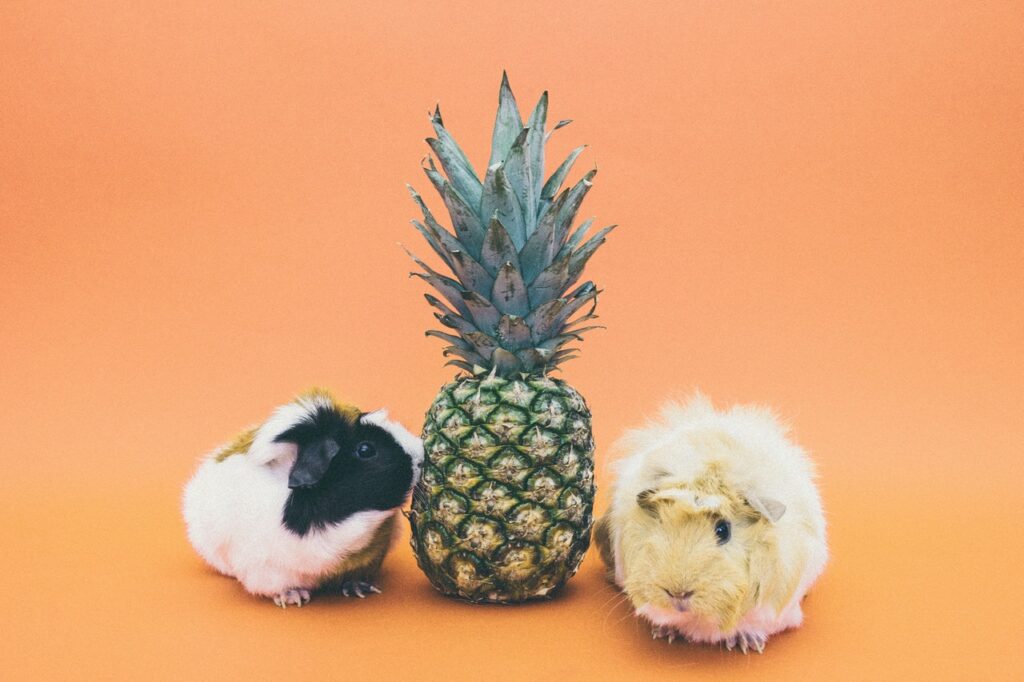Do guinea pigs need vitamin c? This is a question that many guinea pig owners have asked, and the answer is not always straightforward. In this blog post, we will explore the topic of vitamin C and whether or not guinea pigs need it. We will also discuss some of the benefits of vitamin C for guinea pigs and how to make sure your guinea pig gets enough of it.

This question is not easily answered, as the amount of vitamin C that a guinea pig needs depends on a variety of factors, including age, weight, and health status. In general, however, most guinea pigs need around 20 milligrams of vitamin C per day. You can give your guinea pig this amount in either one dose or several smaller doses throughout the day.
There are a few ways to ensure that your guinea pig gets enough vitamin C. One is to provide them with a diet that is high in vitamin C. You can also give your guinea pig a vitamin C supplement. Just be sure to follow the directions on the supplement label and talk to your veterinarian if you have any questions.
There are a number of different sources of vitamin C that you can give your guinea pig. Some good options include:
It is important to note that not all vegetables and fruits are high in vitamin C. So, be sure to do your research before giving your guinea pig any new food.
If you are not sure whether or not a particular food is high in vitamin C, the best way to find out is to check the nutritional information label. This information can be found on most packaged foods.
There are a number of different vitamin C supplements that you can give to an average guinea pig. Most of them are:
There are still some sources that recommend putting vitamin C tablet in the drinking water either by grinding up tablets and dissolving them or using syrup-like liquid vitamin C. One way to supplement your guinea pig's diet is by adding vitamin C-rich food or frozen treats. You can add this vitamin C supplementation in the form of capsules that will not change their taste, and they're safe for both humans and animals alike! However, there are some problems with this approach such as making sure enough water gets ingested during meal times because if it doesn't then the animal may become dehydrated which leads to many different health concerns including kidney stones developing from lack/ insufficient levels of fluid intake.
Vitamin C is a great way to get your pet the nutrients they need. However, not all pets will accept it and some may even refuse treats if you offer them vitamin-c containing food items such as oranges or apple slices! So how do we know what flavor works for adult guinea pigs? experimentation with different preparations can help in this case because everyone has their own preferences when eating healthy things - including our little furry friends who might think crunching on tablets sounds better than drinking liquids via dropper (or syringe).
If guinea pigs do not get enough vitamin C, they may experience vitamin C deficiency and health problems such as scurvy. Scurvy is a condition that can cause skin lesions, tooth decay, and joint pain.
It is important to note that guinea pigs are the only mammal that cannot produce their own vitamin C. This means that they need to get it from their diet. So, if you are not sure whether or not your guinea pig diet includes enough vitamin C tablets or natural resources as fresh vegetables, be sure to talk to your veterinarian.
Scurvy is a guinea pig's disease that can be caused by vitamin C deficiency in their diet. The symptoms of scurvy include:
Yes, pet guinea pigs can overdose on vitamin C. This is more likely to happen if the guinea pig is given a high dose of vitamin C supplement than if they are getting it from their diet.
If you think your guinea pig has overdosed on vitamin C, contact your veterinarian immediately. Guinea pigs who have overdosed on vitamin C may experience health problems such as diarrhea and vomiting.
There are a number of benefits to giving your guinea pig vitamin C. Some of these include:
To keep your guinea pig healthy, it is important to give them a balanced diet. It should include plenty of hay and fresh fruits or vegetables that are high in vitamin C. If you're not sure whether or not your guinea pig's diet is balanced talk to a professional and read our latest post on the guinea pig diet.
It is also essential for guinea pigs to get adequate exercise. If you don't have a lot of room where they live, consider getting them some toys or letting them out into an open area so that they can run around and explore.

Hi! My name is Olga and I'm a bit of an animal lover. I've had several small pet animals through the years and I've learned a lot about them - from caring for them, to understand their behavior.
I'm a fan of rabbits, hamsters, and guinea pigs in particular, but I also love visiting rescue centers to learn more about other furry friends. It's amazing how much personality these little creatures can have - they're certainly not just "cute" animals!